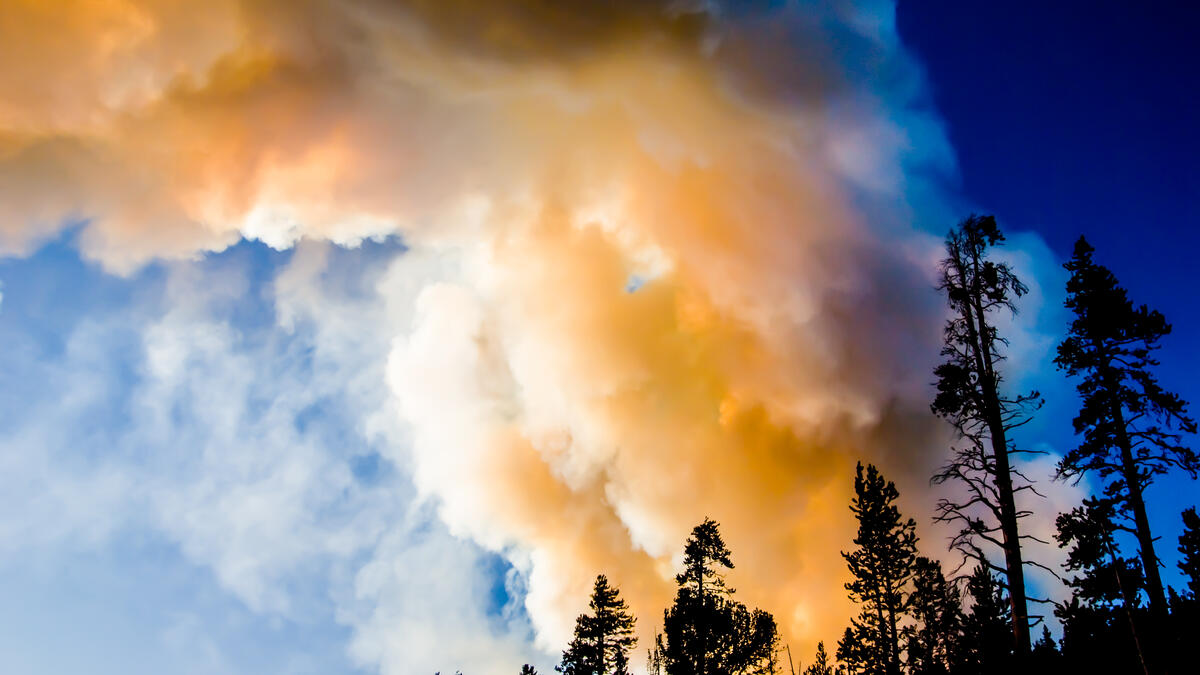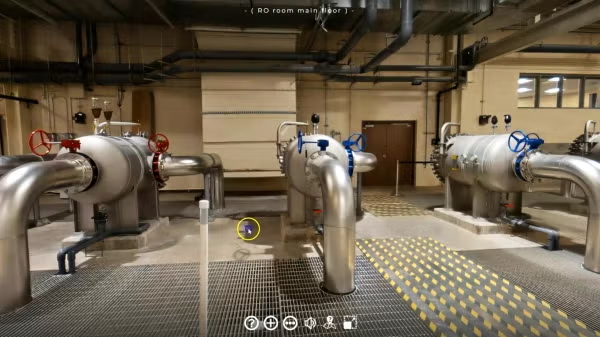ASU team awarded $1.9M grant from EPA to support wildfire preparedness across Arizona

Wildfire smoke, as seen in this photo from Yellowstone National Park in 2022, can negatively impact air quality across multiple states, making it a nationwide concern. Photo courtesy the School of Human Evolution and Social Change
As the impact of climate change leads to bigger, more frequent occurrences of wildfires, an Arizona State University team of researchers has been awarded a $1.9 million grant from the Environmental Protection Agency (EPA) to support enhancing wildfire smoke preparedness across the state.
“Providing the public with tools to protect themselves against the dangers of wildfire smoke is essential for communities across Arizona, especially as climate change accelerates and intensifies wildfires,” said EPA Pacific Southwest Regional Administrator Martha Guzman in a release.
“This grant to Arizona State University will fund a project to improve the capability of local communities to reduce indoor air pollutants during a wildfire smoke event.”
Led by Jean Andino, associate professor of chemical engineering and air quality engineering expert in the School for Engineering of Matter, Transport and Energy, the project also brings in the expertise of Megan Jehn, an epidemiologist and professor of global health in the School of Human Evolution and Social Change, as well as Melissa Guarardo, assistant research professor in the Julie Ann Wrigley Global Institute of Sustainability and Innovation.
“Our goal is to enable resiliency towards air pollution concerns and the associated health hazards that are posed by wildfires.
“Wildfires result in the release of air pollutants, both particles and gases, that are harmful to human health. It is also clear that the incidences of wildfires in Arizona and around the nation are increasing; thus, it is critical that communities are prepared to adjust to changing ambient conditions,” Andino explained.
Jehn will co-lead the training sessions with the community, focusing primarily on the health aspects of heat and pollution.
“Wildfires have increased in size and frequency in the Western U.S., including Arizona, due to our changing climate,” Jehn said.
“We have simple tools available, including DIY air cleaners, that can be used to mitigate the health impacts to these events in communities that are the most vulnerable to the challenges of wildfires and the accompanying air pollution hazards.”
The team is completed with the addition of Guardaro, whose work focuses on adaptation, equity, vulnerability, urban policy and governance for the mitigation and adaptation to extreme heat.
The $1.9 million grant from the EPA is part of a larger, nationwide effort to boost preparedness for wildfire smoke across the United States. In total, almost $11 million has been awarded across the country as part of the Wildfire Smoke Preparedness in Community Buildings Grant Program.
“As we saw this past summer with the wildfires in Canada that impacted air quality on the East Coast of the U.S., air pollution is not just a local issue. Being aware and having a toolkit of solutions is critical,” Andino said.
“My hope is that some of what we develop here in Arizona through our grant can also help to bring awareness to the importance of air quality engineering and the need for more STEM-engaged individuals to help in the development of even more solutions and techniques for air pollution control.”
More Environment and sustainability

2 ASU faculty elected as AAAS Fellows
Two outstanding Arizona State University faculty spanning the physical sciences, psychological sciences and science policy have been named Fellows of the American Association for the Advancement of…

Homes for songbirds: Protecting Lucy’s warblers in the urban desert
Each spring, tiny Lucy’s warblers, with their soft gray plumage and rusty crown, return to the Arizona desert, flitting through the mesquite branches in search of safe places to nest.But as urban…

Public education project brings new water recycling process to life
A new virtual reality project developed by an interdisciplinary team at Arizona State University has earned the 2025 WateReuse Award for Excellence in Outreach and Education. The national …

